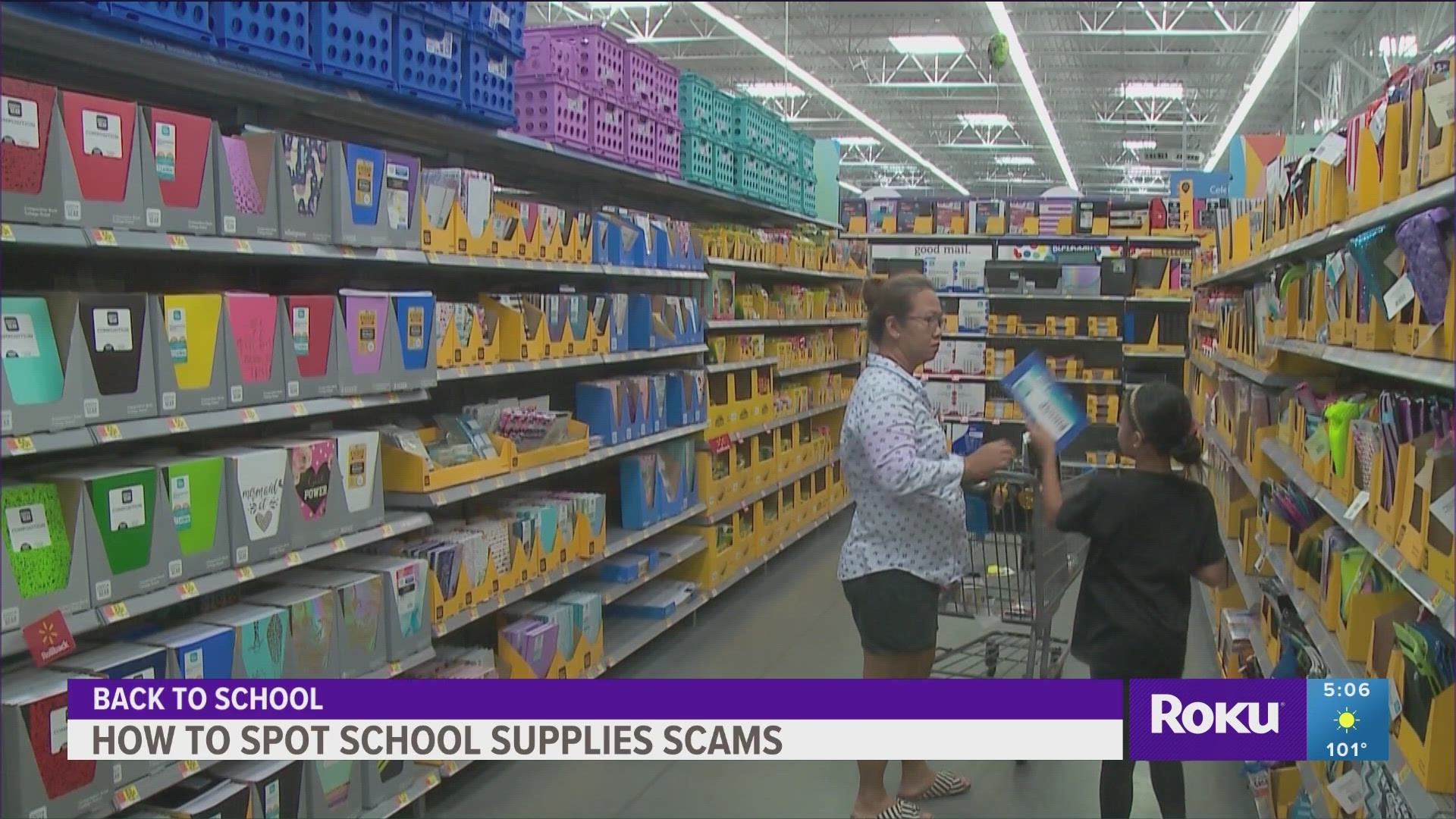AUSTIN, Texas — As the back-to-school season approaches, many families are gearing up for a new academic year. Amid the excitement and preparations, cybersecurity experts say it's crucial to remain vigilant against a rising threat that targets parents and students: back-to-school scams.
Ally Armeson, executive director of the Cybercrime Support Network, said scammers create fake websites that appear to sell popular school supplies, textbooks or clothing at steep discounts.
"They're going to create fake ads, fake websites that appear to sell popular school items. You know, textbooks, electronics are big ticket items. They're going to be great prices, deep discounts or, you know, they may be sold out everywhere else, but magically this retailer has them," Armeson said.
Armeson said it's important do you research if you suspect a website may not be legitimate.
"First, do your research because you just, you never know. The first thing to always do is research. Put the company's name in an online search engine and see the reviews that come back. So, if you start seeing negative reviews or just things that say, 'Hey, I never got my product,' 'I got a subpar product,' that's an indicator," Armeson said.
Phishing emails are also something to look out for. Cybercriminals send emails pretending to be from educational institutions, asking recipients to update their personal information or login credentials. Scammers also use social media platforms to promote fake back-to-school deals or giveaways. Clicking on these links can expose users to phishing attempts or lead to malicious websites.
"Either delete that that phishing email you got, or ignore that ad that you see. Don't go to the website. Research is just key all the time. If nothing pops up during your research, you know, go to the website and check out the website. See if it is professional. Is it polished or are there broken links?" Armeson said.
While on campus or in public places, students might encounter unsecure Wi-Fi networks that hackers can exploit to intercept personal information or conduct phishing attacks. Armeson said the first thing to do is always be careful when connecting to Wi-Fi.
"First thing to do is always verify the network name, right? So if you're in the coffee shop, go to the staff and say, 'Hey, what's your network name?' Then at least you know you're connecting to their network and not some bad actor's. Next, always use a VPN if you're going to connect to public Wi-Fi," Armeson said.
Overall, Armeson said try to use your cellular data or your phone as a hotspot to be safe.
Lastly, scammers have been creating bogus apps, which are fake mobile apps that claim to offer study tools, course information or academic resources but may contain malware or be used to steal personal data.
"The first thing is to make sure your download an app from the official app store. However, sometimes malicious apps can slip through and get onto an official app store. So again, do that research, right? Read the reviews, read the ratings. If there's like only two or three reviews and they're all amazing and they're all kind of in the same timeframe, you know, within a day or two, those are kind of warning signs," Armeson said.
Experts also say to check the permissions and see what the app is taking from you. Fake apps could be stealing your personal information.

